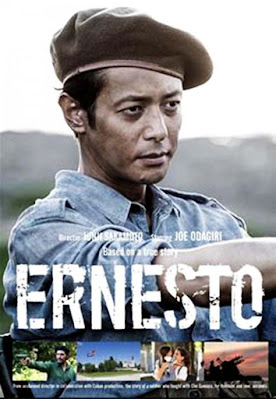“Ernesto” follows the brief friendship that blossomed between one of the most charismatic leaders of the 20th century and a second-generation Japanese-Bolivian named Freddy Maemura Hurtado. Che was so taken with Hurtado’s personality and medical skills (Che himself was a doctor), that he granted him full use of his first name, Ernesto. It’s a slice of political history that few Japanese are aware of — that and the fact that Che once visited this country for 12 days, in 1959.
“Ernesto” is the creation of Junji Sakamoto, who has been referred to by Japanese media as “the rebel from Osaka” because he’s rumored to have ticked off more than a few higher-ups in the industry during the course of his 28-year career. He’s also known as being one of the few successful filmmakers — aside from Takeshi Kitano — who is not dependent on the country’s rigid studio system. “Ernesto” is Sakamoto’s first international collaboration, in this case with Cuba.
“Che Guevara was wildly popular with my parents’ generation,” the 59-year-old Sakamoto tells The Japan Times. “For the Japanese, fatigued from World War II and wary of American democracy, Guevara represented another way of thinking and living. In some ways, maybe there was more political freedom back in the postwar period when Guevara was visiting. Back then it was possible to put flowers in the cemetery of the war dead in Chidorigafuchi or Yasukuni Shrine. Now it’s a heavily loaded event. The very fact that Che Guevara actually came to this country seems like a miracle now.”
Sakamoto says this while sitting next to Camilo Guevara, one of Che’s sons.






No comments:
Post a Comment